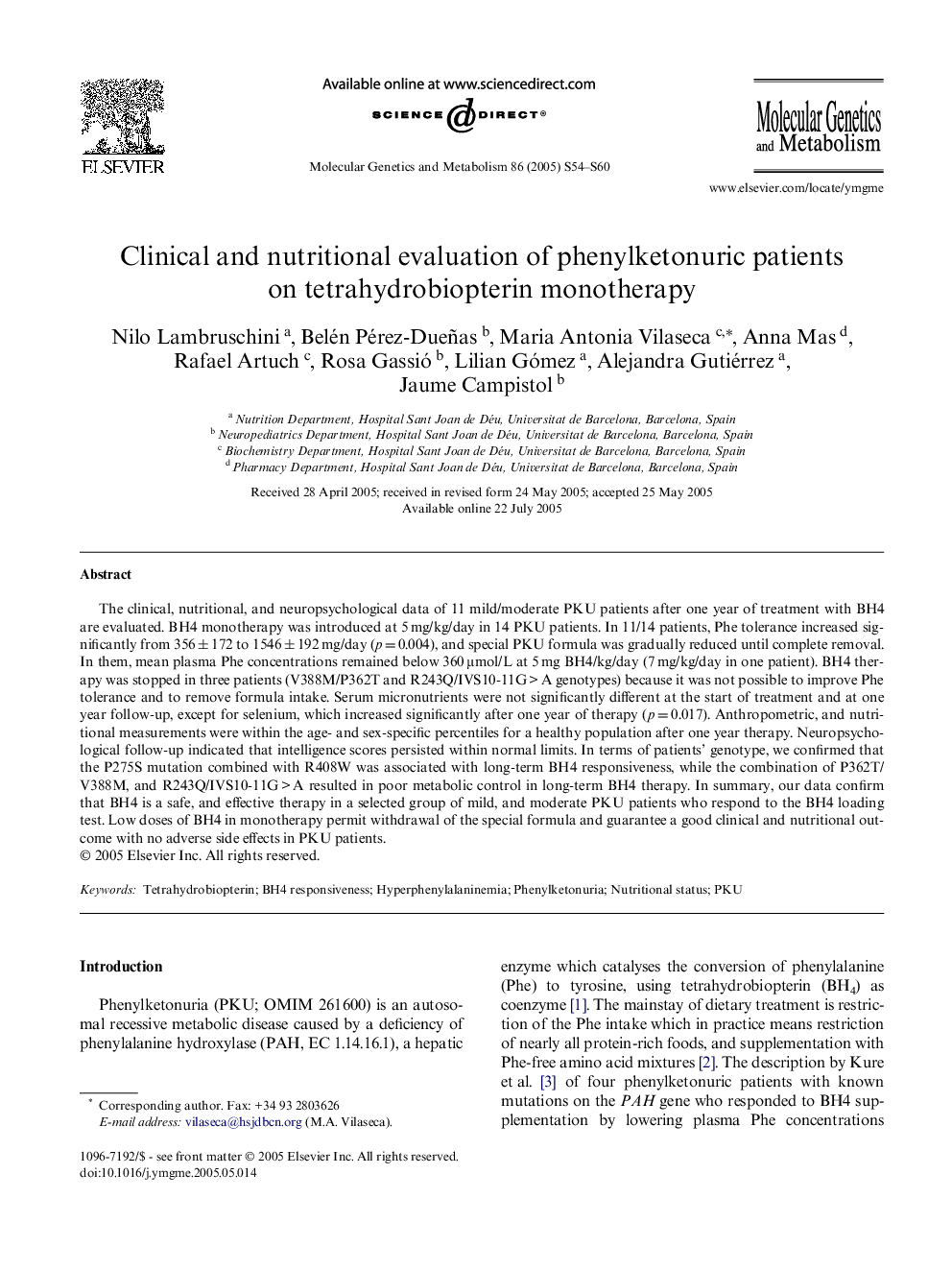| Article ID | Journal | Published Year | Pages | File Type |
|---|---|---|---|---|
| 10834037 | Molecular Genetics and Metabolism | 2005 | 7 Pages |
Abstract
The clinical, nutritional, and neuropsychological data of 11 mild/moderate PKU patients after one year of treatment with BH4 are evaluated. BH4 monotherapy was introduced at 5 mg/kg/day in 14 PKU patients. In 11/14 patients, Phe tolerance increased significantly from 356 ± 172 to 1546 ± 192 mg/day (p = 0.004), and special PKU formula was gradually reduced until complete removal. In them, mean plasma Phe concentrations remained below 360 μmol/L at 5 mg BH4/kg/day (7 mg/kg/day in one patient). BH4 therapy was stopped in three patients (V388M/P362T and R243Q/IVS10-11G > A genotypes) because it was not possible to improve Phe tolerance and to remove formula intake. Serum micronutrients were not significantly different at the start of treatment and at one year follow-up, except for selenium, which increased significantly after one year of therapy (p = 0.017). Anthropometric, and nutritional measurements were within the age- and sex-specific percentiles for a healthy population after one year therapy. Neuropsychological follow-up indicated that intelligence scores persisted within normal limits. In terms of patients' genotype, we confirmed that the P275S mutation combined with R408W was associated with long-term BH4 responsiveness, while the combination of P362T/V388M, and R243Q/IVS10-11G > A resulted in poor metabolic control in long-term BH4 therapy. In summary, our data confirm that BH4 is a safe, and effective therapy in a selected group of mild, and moderate PKU patients who respond to the BH4 loading test. Low doses of BH4 in monotherapy permit withdrawal of the special formula and guarantee a good clinical and nutritional outcome with no adverse side effects in PKU patients.
Related Topics
Life Sciences
Biochemistry, Genetics and Molecular Biology
Biochemistry
Authors
Nilo Lambruschini, Belén Pérez-Dueñas, Maria Antonia Vilaseca, Anna Mas, Rafael Artuch, Rosa Gassió, Lilian Gómez, Alejandra Gutiérrez, Jaume Campistol,
